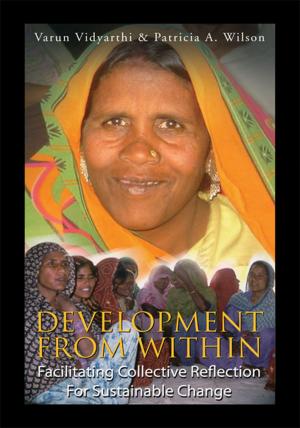The Circumstances Leading to the Underdevelopment of Liberia After More Than One Hundred Sixty Years of Independence
Nonfiction, Social & Cultural Studies, Political Science, Politics, History & Theory| Author: | Samuel K. Ngaima Sr. | ISBN: | 9781524528799 |
| Publisher: | Xlibris US | Publication: | August 26, 2016 |
| Imprint: | Xlibris US | Language: | English |
| Author: | Samuel K. Ngaima Sr. |
| ISBN: | 9781524528799 |
| Publisher: | Xlibris US |
| Publication: | August 26, 2016 |
| Imprint: | Xlibris US |
| Language: | English |
This book identifies and analyzes the historical, political, cultural, and social stratification that created lacks of development in a country that has been independent for more than 160 years. The book reveals that the descendants of the freed American slaves treated the indigenous Liberians as second-class citizens and less than human beings. They and their forefathers were treated less than human beings while in slavery in America. These actions were identified as primary causes for the underdevelopment of the country. The author of this book traces and uncovers the unique formation of the country and subsequent leadership style and the social stratification as well as the Americo-Liberian oligarchic regime as hindrance for development of Africas first republic. The purpose of the book is to show to the Liberian people some of the major causes that led to the Liberian political and social conflict, which resulted into complete underdevelopment of the country and the level of poverty in the country. The findings of this book will help Liberians and other interested people to learn the lessons that when there are suppressions and oppressions in a society, those oppressed will revolt against their oppressors. The book concludes that Liberias inclusive participation can once again be restored provided the Americo-Liberians are prepared for the inclusion of the various ethnic groups. Finally, the book would like to recommend that only Liberians at home and abroad are the actual cornerstones for peace, national rehabilitation, reconstruction, and recovery. This book predicts that the successes in Liberia will not only create a stable environment for democracy in Liberia but will also have a profound level of development as well as impact on peace in the West African subregion, particularly the Mano River Union countries.
This book identifies and analyzes the historical, political, cultural, and social stratification that created lacks of development in a country that has been independent for more than 160 years. The book reveals that the descendants of the freed American slaves treated the indigenous Liberians as second-class citizens and less than human beings. They and their forefathers were treated less than human beings while in slavery in America. These actions were identified as primary causes for the underdevelopment of the country. The author of this book traces and uncovers the unique formation of the country and subsequent leadership style and the social stratification as well as the Americo-Liberian oligarchic regime as hindrance for development of Africas first republic. The purpose of the book is to show to the Liberian people some of the major causes that led to the Liberian political and social conflict, which resulted into complete underdevelopment of the country and the level of poverty in the country. The findings of this book will help Liberians and other interested people to learn the lessons that when there are suppressions and oppressions in a society, those oppressed will revolt against their oppressors. The book concludes that Liberias inclusive participation can once again be restored provided the Americo-Liberians are prepared for the inclusion of the various ethnic groups. Finally, the book would like to recommend that only Liberians at home and abroad are the actual cornerstones for peace, national rehabilitation, reconstruction, and recovery. This book predicts that the successes in Liberia will not only create a stable environment for democracy in Liberia but will also have a profound level of development as well as impact on peace in the West African subregion, particularly the Mano River Union countries.















